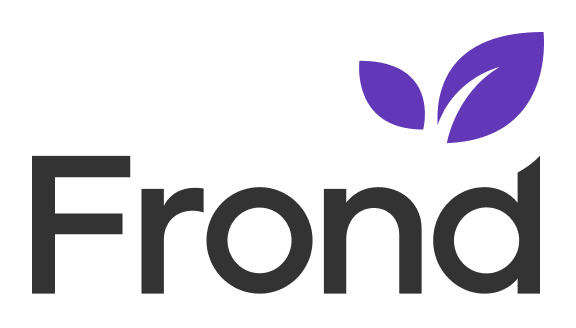Comparing the Top 6 Community Platforms of 2024

In today's digital frontier, creating an online community is more than a trend—it's a crucial strategy for brands, creators, and groups keen on sparking engagement, sharing knowledge, and fostering lasting connections. With a dizzying array of community platforms to choose from, making the right choice can be overwhelming.
As we ride the wave of innovation into 2024, choosing the best online community platform becomes pivotal—not only should it meet your immediate needs, but it should also scale as your community grows. Whether you're cultivating a niche hobby group or steering a sprawling brand community, the platform you select is instrumental in shaping every member's experience.
The 6 Best Online Community Platforms
Join us on a guided tour to uncover the perfect platform for your online community to chat, collaborate, and thrive. Our lineup features both well-established giants and promising newcomers: Discourse, Slack, Discord, Facebook Groups, WhatsApp, and Frond. Here's what each of these community platforms brings to the party:
1. Discourse: The Structured Conversationalist
Think of Discourse as the elegant dinner party host of community platforms, where threaded discussions unfold with sophistication and grace. Its stellar customization options allow for a tailored community setup that's a tech enthusiast’s dream.
However, setting up and customizing Discourse might require more than just a passing knowledge of technology, possibly necessitating a developer's touch. While it offers a rich, detailed community experience, its barrier to entry might deter those looking for a simpler solution. Over the years, Discourse’s interface has grown familiar yet might appear dated, and it may not align with the aesthetic or functional needs of every community.
2. Slack: The Team Communicator
Slack is a community platform that has revolutionized how teams chat, blending instant messaging with file sharing and slick integrations for a smooth workflow. It's the go-to for dynamic team interactions, creating a lively, efficient environment for collaboration and day-to-day operations.
But Slack’s focus on internal team communication can be a limitation when it comes to broader community engagement. Its structure, designed for closed groups, doesn't naturally lend itself to open, community-wide interactions.
Additionally, Slack’s chat-centric approach can result in cluttered discussions, akin to the chaos often found on platforms like Discord. Its pricing strategy—charging per member per month—might just break the bank for many online communities.
3. Discord: The Real-Time Rally Point
From its gaming roots, Discord is a popular online community platform that has evolved into a bustling hub of real-time interaction with a cool mix of voice, video, and text chat. It's perfect for communities that value spontaneity and immediacy.
However, Discord’s strength in real-time interaction can also be its Achilles' heel. Its interface, dominated by chat channels, can be overwhelming for newcomers who are greeted with a continuous stream of messages. This purely chat-based setup makes it challenging for new members to ease into the community smoothly.
Large, diverse communities might find this community platform overwhelming without rigorous moderation and organization, as the lively conversations that make Discord appealing can quickly spiral into chaos.
4. Frond: The Versatile Visionary
Enter Frond, a fresh face blending deep, thoughtful forum interactions with the spark of real-time chat, all housed in a sleek, easy-to-navigate interface. Frond addresses the modern community builder's platform needs, offering customizable spaces that feel personal and engaging. With unique features like the ability to set up paywalls to charge members for access, and the integration of events and courses, Frond caters to a variety of community activities and needs. Plus, its monetization options are designed with the community leader in mind, offering fair, transparent transaction fees.
Frond organizes conversations into threaded posts by default, which reduces clutter and overwhelm associated with traditional chat platforms. This structured conversation format ensures that interactions are clear and accessible, making it ideal for communities that value order and ease of participation.
While it’s a newer player on the field, Frond's comprehensive approach to community building—prioritizing ease, engagement, and control—positions it as one of the best online community platforms for those looking to cultivate vibrant, dynamic communities.
5. Facebook Groups: The Mainstream Meeting Spot
Facebook Groups leverages its massive user base to offer a platform where anyone can quickly start a community. Its integration with the wider Facebook ecosystem can increase visibility and ease of access for potential members.
Accessibility is its middle name, but so is unpredictability. Building on this platform means contending with the whims of Facebook's algorithms and navigating privacy concerns . This community platform’s changes can impact visibility and engagement unpredictably, leaving community leaders to adapt to shifting sands beneath their feet. Moreover, being part of Facebook, it does not allow for the development of a unique brand identity on your own domain.
6. WhatsApp: The Cozy Gathering Spot
WhatsApp keeps things simple and secure, perfect for small, close-knit group chats. It's your cozy living room gathering, where conversations are intimate and protected. Its end-to-end encryption and straightforward messaging format make it a trusted channel for personal communication.
But when it comes to larger gatherings or structured chats, WhatsApp might feel a bit cramped. This community platform's simplicity, while a boon for privacy, limits the scope for broader, more structured community interactions. WhatsApp lacks the structured discussion features and community engagement tools found in more comprehensive platforms, making it less suited for fostering wide-ranging community dialogue.
Picking Your Perfect Community Playground
As we explore the community platforms landscape of 2024, it's clear that each offers a unique environment tailored to different needs and styles of interaction. The trick is to tune into your community's rhythm and find a platform that amplifies its voice. Whether you're uniting a tight-knit team or rallying a varied group of enthusiasts, there's a platform out there that's the perfect stage for your community's conversations.
Choosing the best online community platform is the first step in a journey of thousands of posts. So, take your pick, set the stage, and let the conversations begin!
